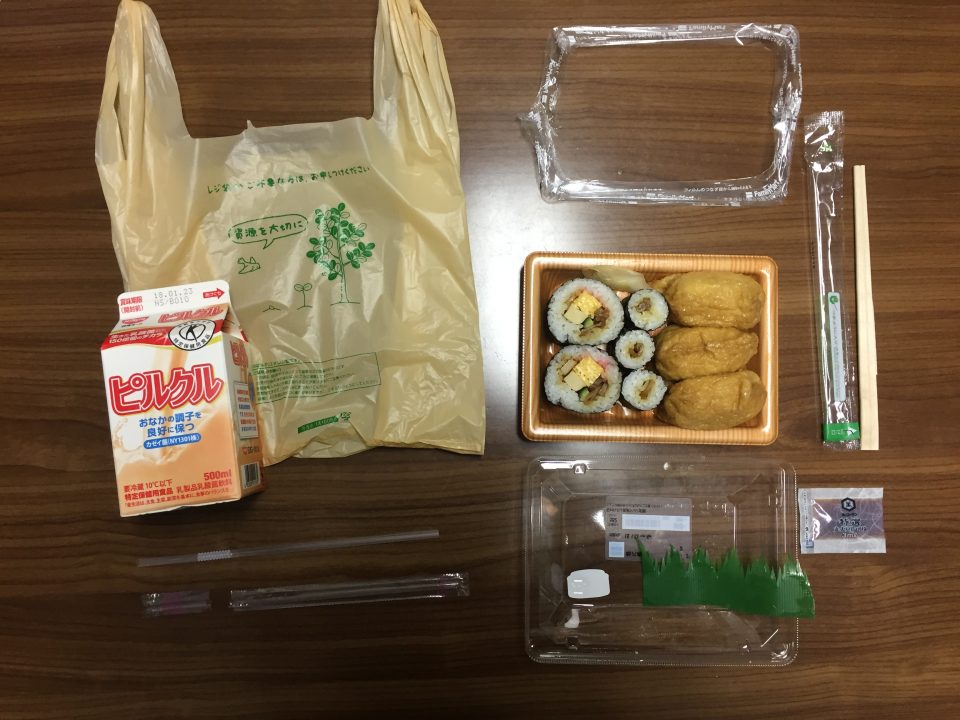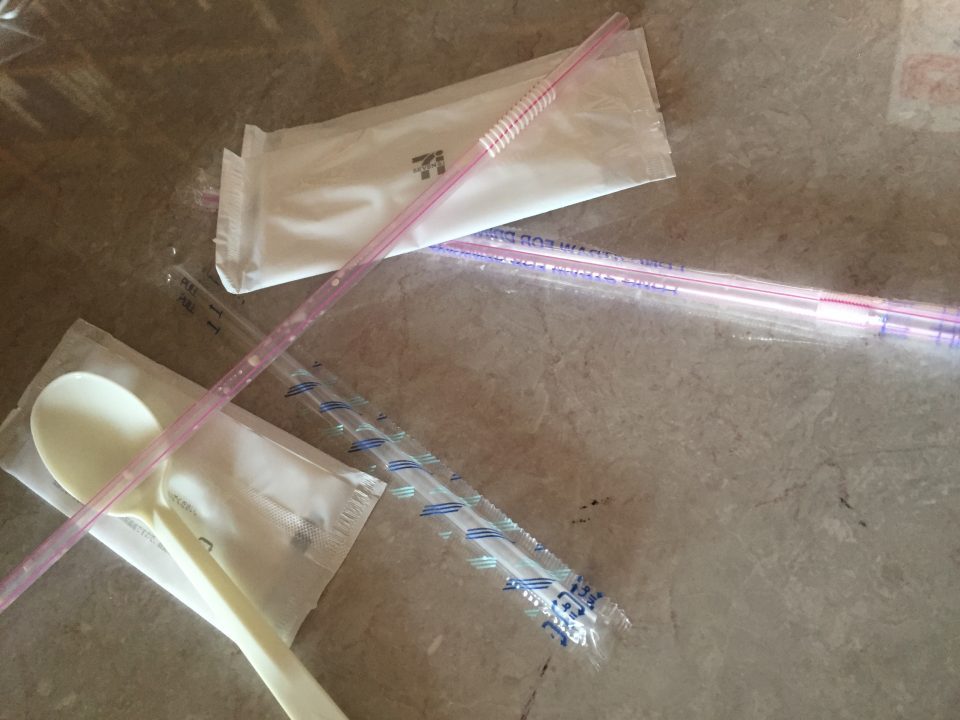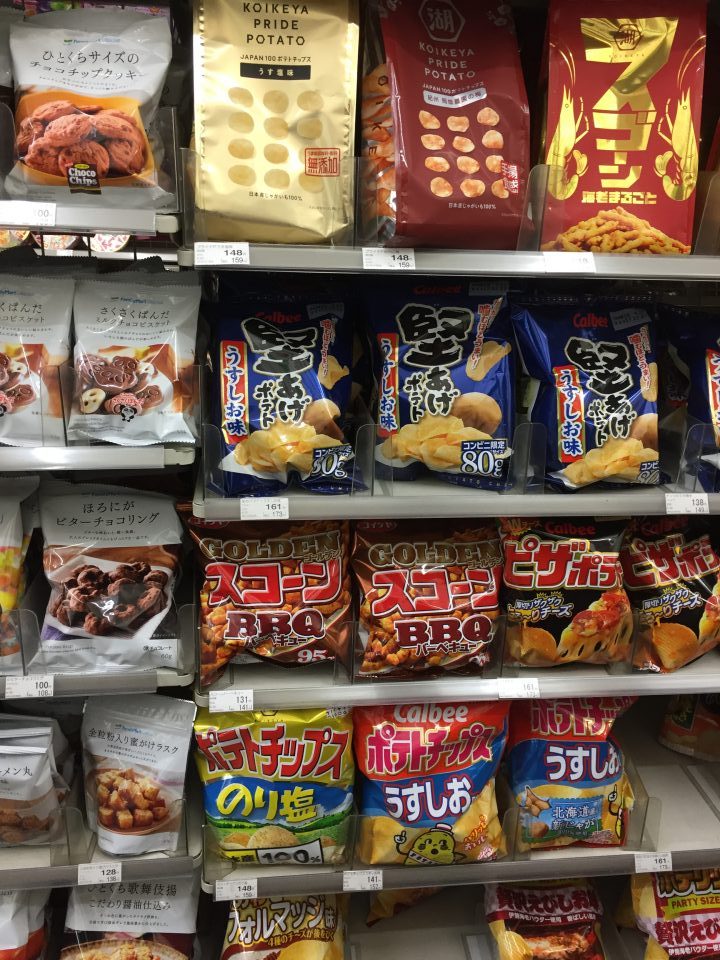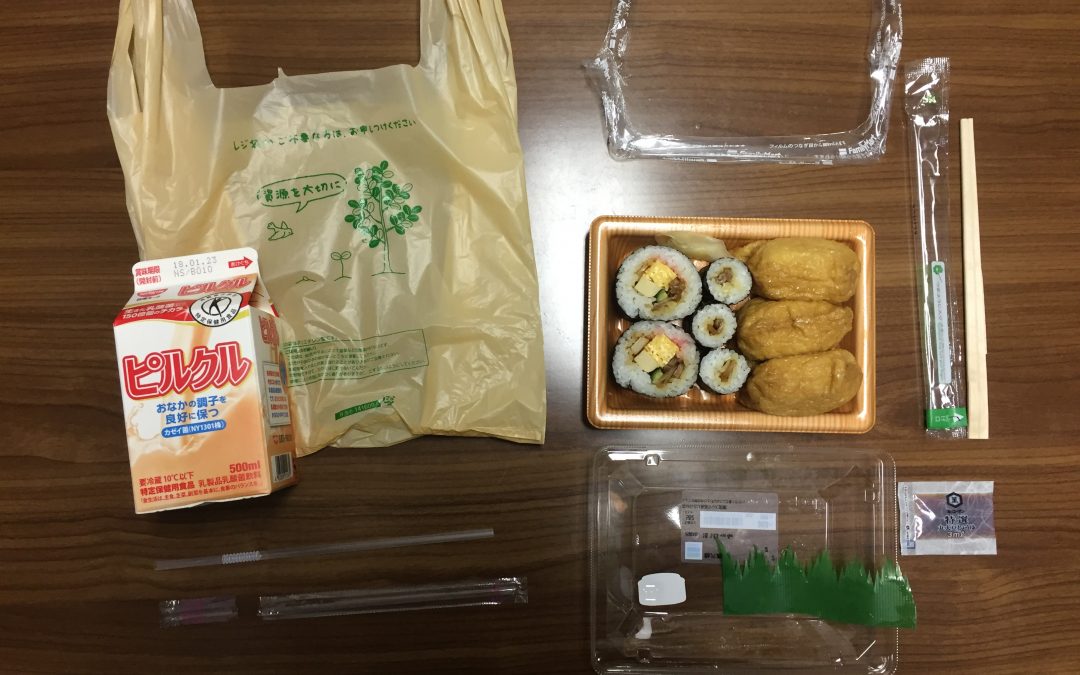I’ve had way too many quick meals with too many pieces of plastic, wood, metal and Styrofoam this trip. I cannot “leave only footprints,” as St. Olaf’s IOS office urges. My path through Japan is continuously lined with the waste items of everything I consume.
We have repeatedly bought hasty meals from the superbly convenient convenience stores for breakfast as we head out of town or as we wait for a speeding ride on the Shinkansen. Although it is indeed convenient, purchases usually entail a large number of waste items. Every piece of convenience store food comes with an extra piece of unnecessary trash. Most food comes in one piece of packaging with another piece of trash attached. This could be the mini straw on a small drink carton plus the plastic wrap outside it, or the band of plastic holding a food container itself closed. The chopsticks are wooden, covered with a plastic wrapper and come with a bonus toothpick (just in case!).

The focus is on customer service, but it feels entirely unnecessary to a visiting American (even to one who has frequented Japan recently). The environmentalist side of me is often pained by my own purchases, and the volume of immediately visible waste as food is consumed is appalling. If four people buy a good amount of snacks and all at once gather their leftover trash, an amazingly large pile can be accumulated. How did Japan get to the point where they feel required to provide every little possible customer service item for every single customer?


I often ask to skip the plastic bag at the checkout counter and always receive an ありがとうございます (arigatogozaimasu, thank you) in return. I have to wonder if this is a thank you on account of the company’s financial status or for my consideration towards the environment. Although their plastic bags urge us to consider our environmental footprint, I am curious what each individual worker thinks about as they utter their gratitude. If I had the time, resources, and pure motivation to do so I would like to ask multiple convenience store workers why they say “thank you” after being told no plastic bag is needed.
So, I beg to ask: do you have the impression that Japan is a country that excels at the “reduce, reuse, recycle” method? Why is that? Do we need to contemplate why we are thinking along the lines of environmental orientalism? Additionally, how many Japanese people dislike being given a plastic bag everytime they purchase something at a convenice store? What percentage of people act upon that opposition and bring their own reusable bag?

